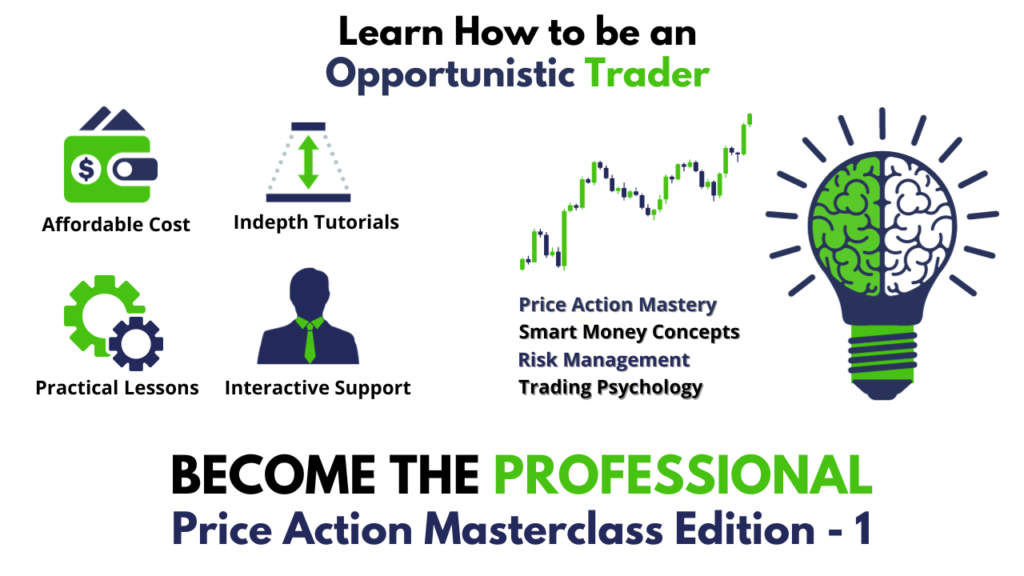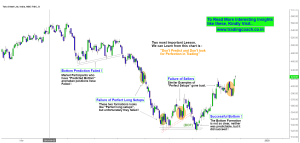Cognitive Psychology refers to the study of Human mental processes and their attributes in creativity, thinking and Problem solving. We’re fortunate to see great developments in psychological science which didn’t exist years ago. Cognitive Psychology has a lot to offer for everyone, especially to traders and Investors.
We can apply these scientific facts and ideas to improve our trading skills. Even, better we can improve our consistency and profits by developing our brain’s ability. In this article, I’ll cover three important cognitive psychological advice to improve your trading skills. Personally I tried them myself and my trading results were better than before.
1. RETHINK YOUR PRICE ACTION SETUPS – YOUR TRADING ABILITY IS NOT SO GREAT
Subjectively traders who think them self as good enough, are quite highly optimistic in their abilities. But scientific research shows that such optimistic affirmations, beyond limits can lead to overconfidence. In particular, such optimism can make you bad at probabilistic judgments. It applies to every human and every profession, not just trading. Everyone whether novice or Professional traders suffer from overconfidence and over optimism – A study shows experts and novices, both suffer from overconfidence.
If you think yourself, that your trading ability is great enough – then most likely, you’re over-estimating your trading skills.
A PSYCHOLOGICAL TECHNIC FOR TRADERS TO OVERCOME OPTIMISTIC BIAS
One Psychological process suggested by cognitive psychology is known as calibration. I applied this technique, which resulted in more accurate estimations of trading setups –patterns. One important technique under the process of calibration is Rethinking. Rethinking can be done in two steps, First Assume that something has already gone wrong. Second try to explain why it has gone wrong. When we review our decisions in such a way, it helps to produce a better estimation.
We can apply the concept of rethinking in assessing our trading setups, probability or Price action patterns.
1. Assume that a Trade has failed 2. Explain why it failed
It helps much to improve your trading judgments, because when you asses the probability of a price action trading setup – after going through the calibration process, you’ll become more aware of the reasons against taking the trade. Effectively you’ll be making a better estimate of your price action setups. Calibration process is also associated with pessimistic wisdom.
2. LAZY TRADING IS GOOD – TRADE LESS TO IMPROVE YOUR TRADING DECISIONS
Trading less is exactly opposite to intraday trading and scalping, it also sounds counter-intuitive for some traders. After all, a trader is supposed to be trading most of the time right? The real problem behind such a belief is that human mind always relates activity with money and results. We all seem to think, that more activity means more money and more results. So it’s quite obvious to think that more trading means earning more. It’s no wonder that most day traders attract to such beliefs. But trading more- Earning more mantra is not true.
The actual psychological phenomena behind is decision fatigue. It means the quality of your decision-making drops after a series of constant decisions. Logic behind decision fatigue is that, we need willpower to make good decisions, but the willpower is limited. Every decision we make drains our willpower leaving us with less energy to make next decision. So the quality of your decision drops constantly to your will power. When willpower is depleted, it becomes harder to make good judgments and easier to fall in emotional pits. A recent study in judges confirms this hypothesis.
HOW DOES DECISION FATIGUE APPLY TO TRADERS?
Following your trading style and making right trades consume your will power. Hence with every trade your ability to follow your trading style and taking right trades, deflate.
Still it might be hard for you to convince yourself, because of your belief that our trading edge only comes from taking as much trades as possible. Remember it’s only true as long as you take high probabilistic trades and follow your trading style. When decision fatigue comes in, your ability to follow your trading style decreases and you’re more likely to end up taking low probabilistic trades.
This is one of the reasons, why swing traders and positional traders make more returns than day traders.
3. YOU SHOULD STOP ANALYSISNG EVERY LOSING TRADES – FOLLOW DANIEL KAHNEMAN
Daniel Kahneman is a well-known Psychologist in the circles of economics and finance. One important quote from Daniel is “Casual explanations for chance events are inevitably wrong” from his book thinking fast and slow. We seek explanations for everything, like to conclude that everything happens for a reason and generalize conclusions even with small examples. This leads to wrong conclusions and beliefs. This process is also known as law of small numbers.
WHAT LAW OF SMALL NUMBERS HAS TO DO WITH TRADING?
Have you ever tried to explain why your trade failed, even if the loss is bearable and so small? Seeking explanation and analyzing such losing trades is waste of time and misdirection of effort. In order to get right picture and form justified beliefs about your losing trades – you need to have large sample of trades. Often we can notice novice traders as well as advanced traders, jumping from system to system due to one or two losing trades. We can’t say anything about a system or a method with just one or two losing trades, to form any valid conclusions, it is necessary to have many trades.
Before you analyze your losing trades, or jumping from methods – Always remember the law of small numbers







